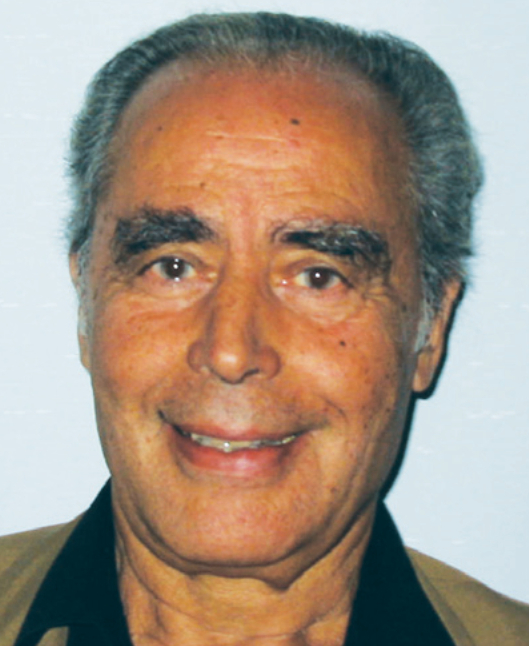Dr Ali Bouaziz, 1930–2020

Dr Ali Bouaziz died quite suddenly but not unexpectedly on 2 March 2020, just a few weeks shy of his 90th year, in his beloved Drummond Drive house in the trees. He had a unique personality and will be missed by all, especially Gloria and her daughter Emmanuel.
Dr Bouaziz was born in Tunisia in 1930 and saw firsthand the atrocities of World War II Nazi occupation, which marred him for life. As a teenager he moved to Paris to complete a medical degree and a fellowship in gastroenterology, never to return to Tunisia or have contact with people there. He was able to support himself in Paris by teaching tennis—a game he had started to play fairly late in youth, but one at which he nevertheless excelled.
One day while pulling his car out of his parking space at the hospital (licence marked MD) he was stopped by a policeman who demanded, “Vos papiers!” After all was found to be in order, the policeman said, “Vous comprenez, Docteur,” and Ali knew immediately that he had to leave France and its North African “situation.” He wound up in the city hospital system in Queens, New York, in a surgical training program. After completing the program, he found a job as a teaching fellow in French-speaking Quebec City. After a few years in a surgical indentured servant position, which was unfortunately all too common in a past era, he visited Vancouver and knew that there was room for him here.
And he did create quite the room for himself at Mount Saint Joseph Hospital, where he operated every Tuesday and Thursday for many years as a solo-practice general surgeon. There were many medical colleagues of note at that hospital in those days, including his long-time family doctor and sometimes surgical assist, Dr Tony Otto. Other than Ali’s surgery practice, his tennis, his tennis clubs, and his friendship with the Molnar family kept him busy.
When I was a freshly minted anesthesiologist, I was impressed with his conservative attitude toward surgical intervention. At the time (1986), I was amazed how, somewhat in opposition to conventional teaching at the academic institutions, he would sit and wait on appendicitis and inflammatory bowel disease until things really were bad. Now, 34 years later, this seems standard practice; he definitely was ahead of his time.
Ali’s knowledge of the equity markets, politics, history, and philosophy (especially his fellow North African existentialist and Nobel Prize–winner Albert Camus) was remarkable. As it was for Camus, the world for Ali was absurd in the face of human rationality, but the struggle between the two was the most important thing to continue.
—Mark Elliott, MD, FRCPC
Vancouver
